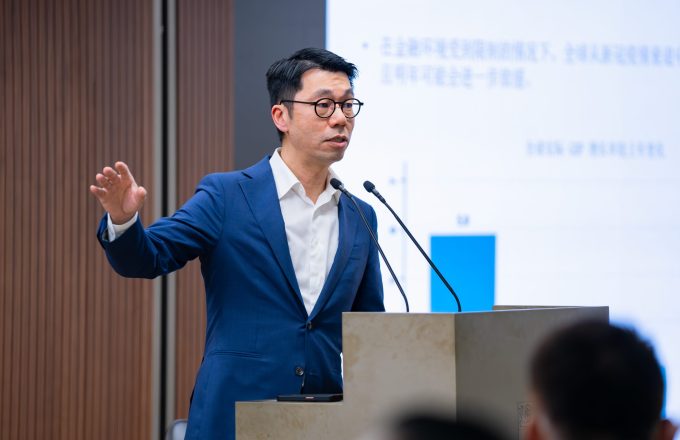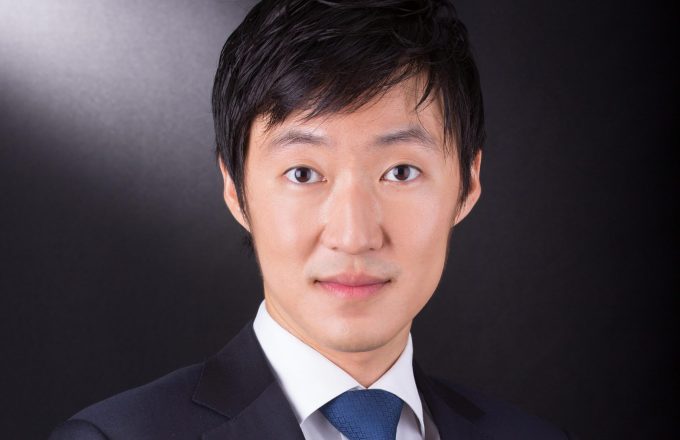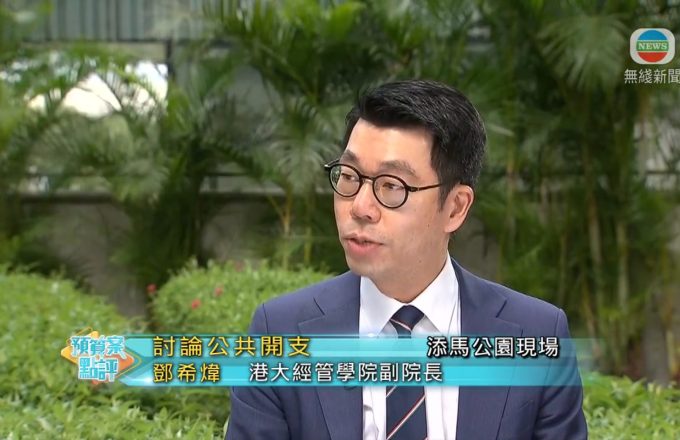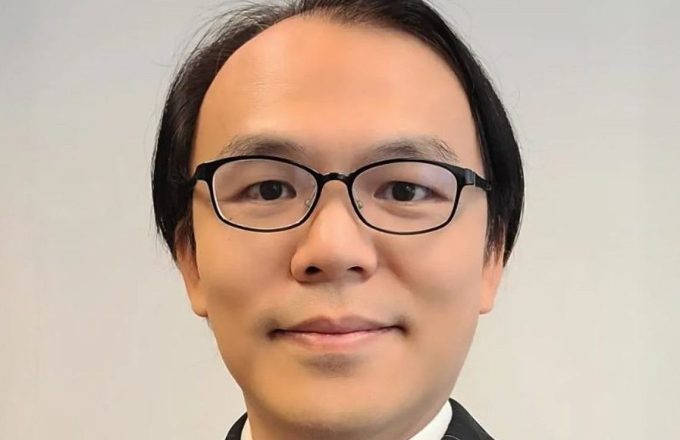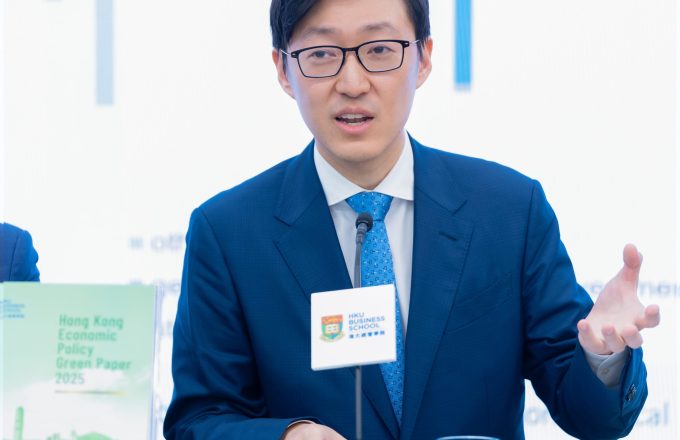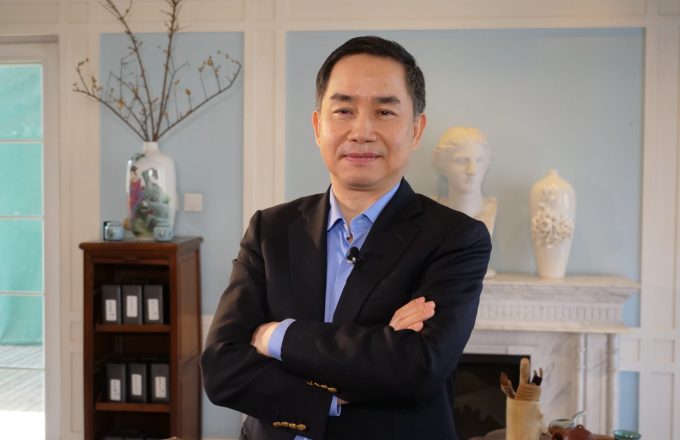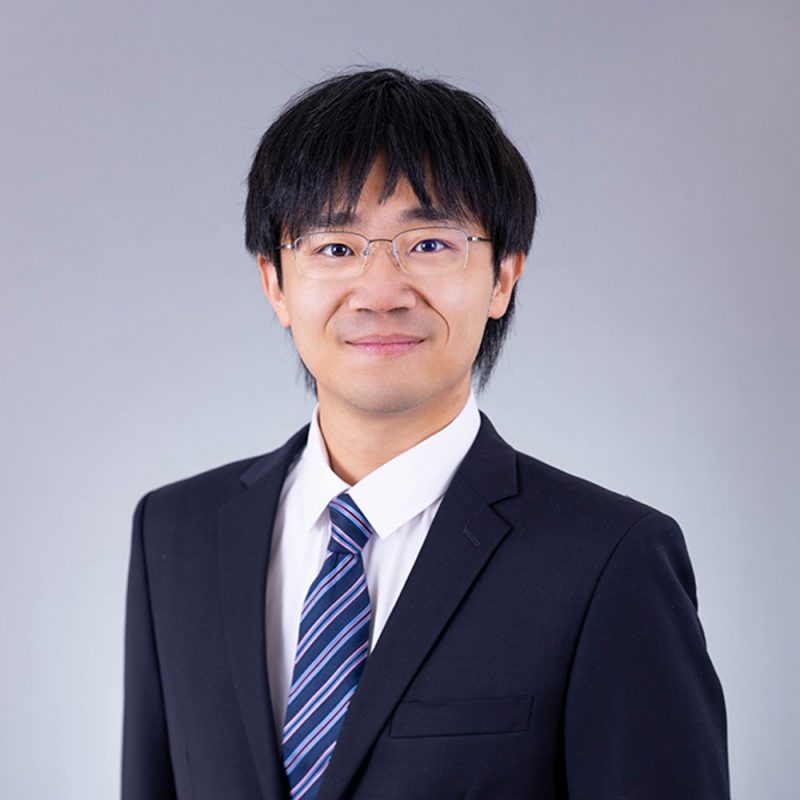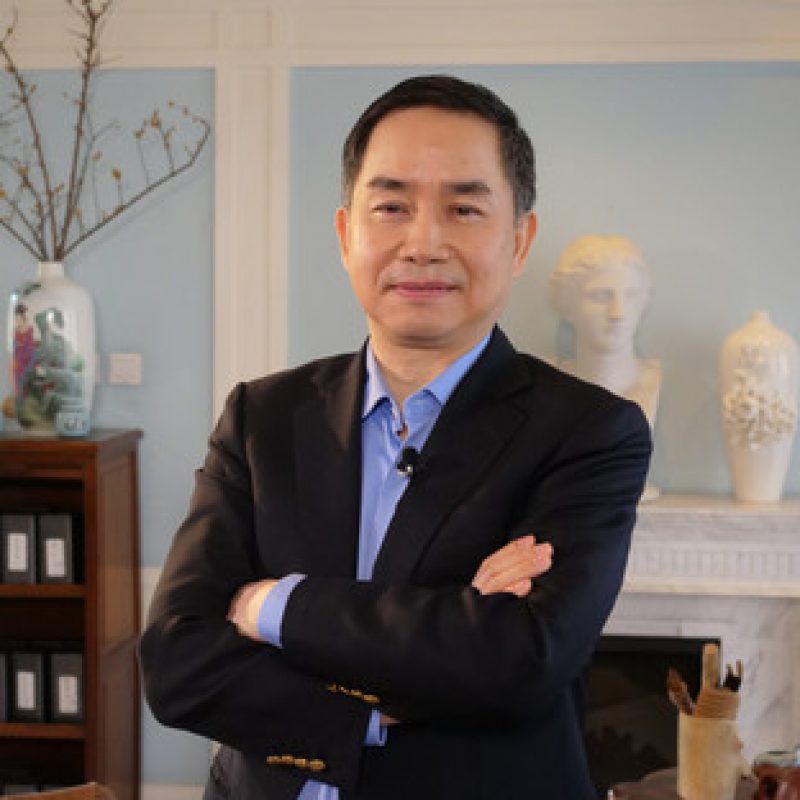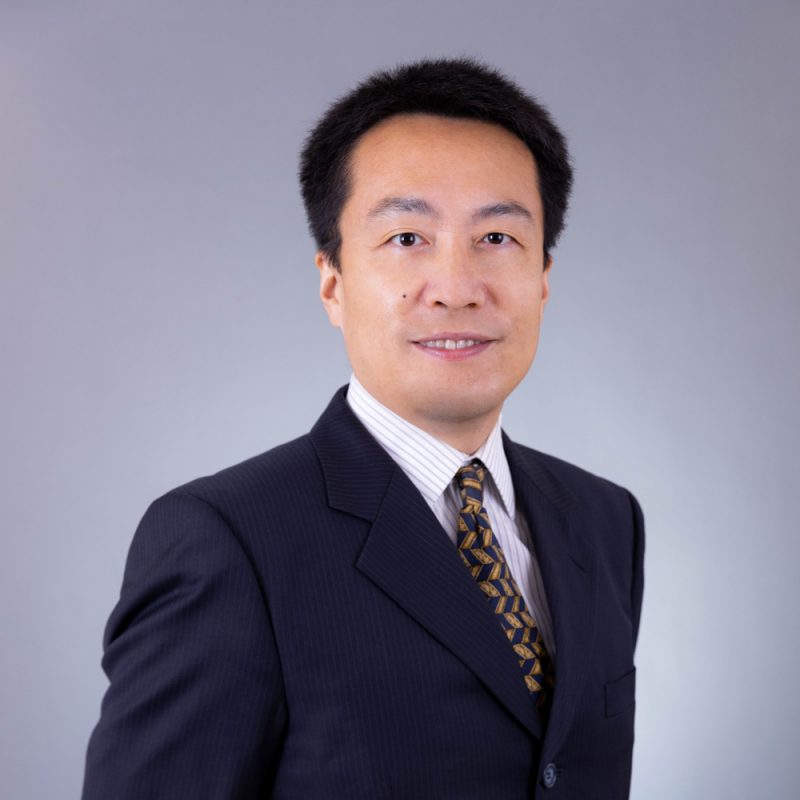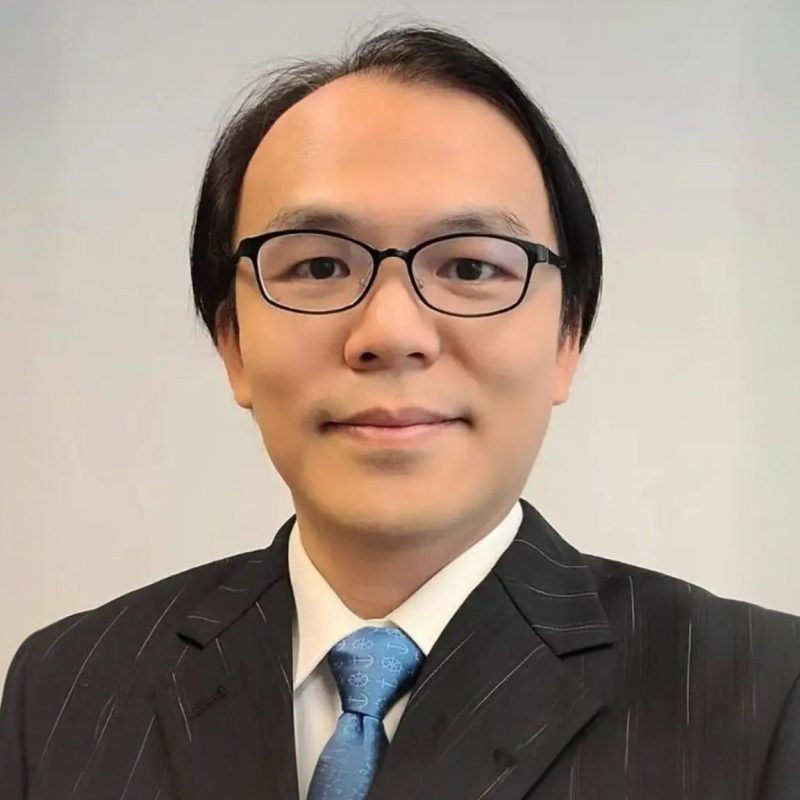Associate Dean of HKU Business School and Director of the Asia Global Institute Prof. Heiwai Tang shared his views on the Hong Kong budget during interviews with the South China Morning Post SCMP and Hong Kong Economic Journal. He highlighted that the government is taking "a conservative approach" to address the significant deficit, with a proposed 2% reduction in recurrent expenditure for the 2025-26 financial year, followed by similar cuts in the following two years. He argued that increasing this reduction to a more ambitious 3% may be necessary to address the structural deficit, especially given that the government's ability to boost revenue to match rising spending is in question. Regarding Hong Kong's projected debt-to-GDP ratio of up to 16.5% over the next five years, Prof. Tang described it as at a "completely safe" level. As for renminbi bonds, they appeal to institutions that require and hold RMB. Such state-owned enterprises have good cashflow, so investments in RMB bonds with a maturity period of 3-5 years is considered more effective. Prof. Tang also emphasised that issuing bonds aimed at institutional investors is more cost-effective. With the current stock market doing well, retail investors require higher yields of at least 4% to 4.5% to be interested in bonds. Therefore, he recommended maximising institutional market engagement, as a yield of 3.5% is still appealing to institutional investors.
27 Feb 2025
Faculty
In an interview with Master-Insight, Associate Professor Yang Liu from HKU Business School stated that the 2025/26 budget is in line with expectations and that Hong Kong's financial situation remains healthy. He commented that the government is handling the budget carefully and that spending cuts are encouraging. He is optimistic that a moderate reduction in operational expenses can help. Prof. Liu emphasised that the government should speed up the development of long-term projects, such as the Northern Metropolis and various university research initiatives. He noted that funding should take into account both social and economic benefits, and that these plans need government support in terms of basic research resources and infrastructure to effectively attract talent. He also advised the government to avoid investing in "high-risk enterprises," stressing that "Hong Kong has always been a small government, and it should continue to maintain that approach." Prof. Liu noted that Hong Kong's bond issuance plans should be clear and easy to understand, which would help build public trust. He also emphasised that public finances should be reviewed with a "focus on the big picture while letting go of the small" approach. He argued that cutting back on small-scale resources, like the elderly transport subsidy, may not be worthwhile in the big picture. He also does not support cutting civil servants' salaries.
27 Feb 2025
Faculty
Hong Kong's economy faces many challenges, particularly given the current geopolitical climate. Nevertheless, Associate Dean of HKU Business School and Director of the Asia Global Institute, Prof. Heiwai Tang expressed optimism during his interviews with TVB (Television Broadcasts Limited) News, iCable News, and Radio Television Hong Kong (RTHK). He stressed that the latest budget includes several measures aimed at economic transformation, as well as important plans to reduce spending. He said it’s essential to distinguish between short-term and long-term impacts. Prof. Tang is confident that the government can achieve a 2% annual reduction in recurrent expenditure, with a targeted 7% reduction within four years. He noted that social welfare, healthcare, and education spending each exceed 100 billion dollars, we also face challenges from an ageing population that will likely bring greater spending in these areas. Prof. Tang also highlighted that HK's debt accounts for about 10% of our GDP, which is much better than Singapore's, for example, which is more than 170% of their GDP. He expects that interest rates won’t rise in the next year to two years, and thinks issuing bonds with a maturity of 10-15 years is reasonable for supporting long-term infrastructure development.
26 Feb 2025
Faculty
In chapter 7, Prof. Michael Chau explores three key dimensions linked to AI, namely Hong Kong’s competitiveness, the labour market, and safety considerations.
First, to maintain Hong Kong’s competitiveness globally, it is important for all sectors to embrace AI. In the midst of fierce competition from regional rivals and the US-China technology war, Hong Kong needs to forge a distinctive strategy, and build her own strengths in both basic research and real-world applications. Second, the author observes that the current AI wave is likely to impact high-skilled, high-income jobs. AI will also profoundly impact global and local labour markets, replacing and creating many jobs in a complex interplay. Third, AI can pose certain safety issues to society, such as in cases of missteps, hacking, viruses, software bugs, bias and discrimination. Government must therefore educate the public about the power and risks of AI, and devise regulations and guidelines on the responsibilities and ethical considerations of AI.
24 Feb 2025
Faculty
According to Prof. Heiwai Tang, Associate Dean of HKU Business School and Director of the Asia Global Institute, there is no consensus from an economic perspective that a government debt-to-GDP ratio exceeding a certain level poses a danger to the economy. Currently, the proportion of the government's outstanding debt has not reached a level that requires attention, and Hong Kong has the capacity to issue over HK$100 billion in bonds. It is estimated that the issuance amount for the new fiscal year may be similar to last year. If the financing is matched with long-term infrastructure spending, longer issuance terms are preferable. Even if the relevant ratio gradually increases to 20% in the future, there will still be room for issuing debt. The key considerations are the market's absorption capacity and interest costs.
24 Feb 2025
Faculty
In the late 19th century, Italian economist Vilfredo Pareto observed that 80% of the nation's wealth was controlled by just 20% of its population. This striking disparity later inspired American management theorist Joseph Juran to develop the renowned "80/20 Rule," which posits that 80% of outcomes typically stem from 20% of contributing factors.
24 Feb 2025
In a recent interview with HK01, Associate Professor of HKU Business School Yang Liu, discussed the financial situation in Hong Kong. He acknowledged the public's concerns about the government's financial reserves but reassured that even with the current deficit, Hong Kong’s reserves could last about five years. This shows that Hong Kong's financial status is stable. Prof. Liu stressed that compared to other developed economies that frequently face persistent deficits, Hong Kong's debt levels are manageable, and the government has historically generated enough income to cover expenses, which minimises the risk of ongoing deficits.
21 Feb 2025
Faculty
Prof. Zhiwu Chen, Chair Professor of Finance at HKU Business School, commented that, “At the end of the day the reality is that the private business sector in China is only of value when the Chinese Government needs some growth or needs to stabilize the economy".
20 Feb 2025
Faculty
The "Flying Geese Paradigm," proposed by Japanese economist Kaname Akamatsu in the 1930s, describes the industrial upgrading process of East Asian countries from labor-intensive manufacturing to capital- and technology-intensive industries. According to this theory, Japan, as the "leading goose," was the first to achieve industrialization and stimulated the development of other countries through foreign direct investment. This created a mutually dependent and progressively advancing industrial division of labor in East Asia, resembling the formation of a flying geese flock in the sky. The theory was validated through decades of post-World War II economic practice. Japan's global expansion strategy not only shaped the manufacturing landscape of East Asia but also became a model for the globalization of enterprises in countries such as China and South Korea.
19 Feb 2025
Faculty






